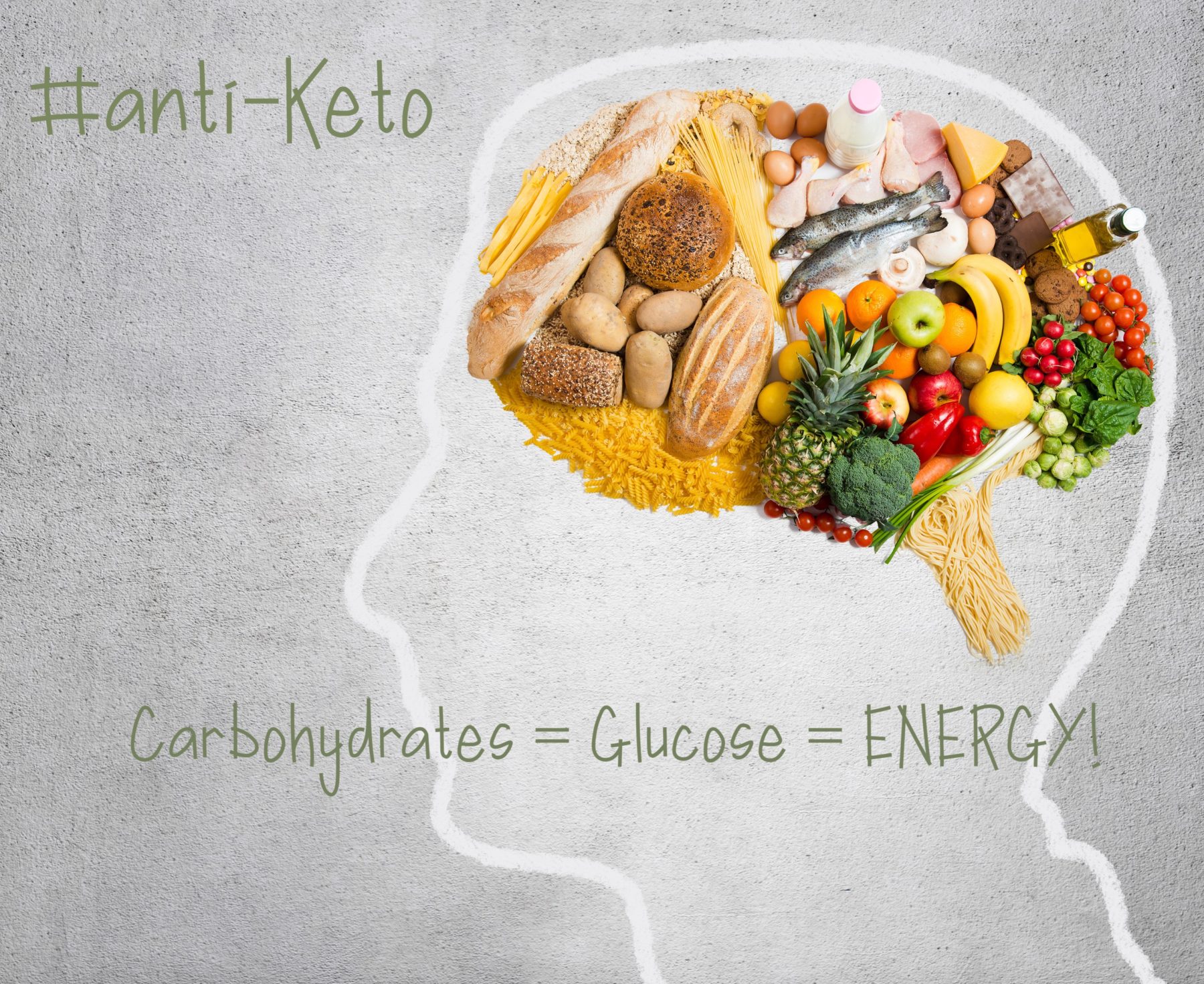The keto diet is all the rave right now! Everyone has heard about it. So, being a registered dietitian, you bet I have been asked about it! So, what is the keto diet? Is it good for you? Are there health consequences? Does the keto diet correlate with eating disorders, such as anorexia? Well, the keto diet is a very low carbohydrate, high fat, high protein diet with the goal of weight loss. Before I dive into the facts about the keto diet, I want to say that weight loss is due to expending more calories/eating fewer calories than your metabolic needs. Whatever, “diet” you choose, if your caloric intake is less than your caloric needs, you will lose weight. So eating only carbs, with the caloric intake less than your needs, will result in weight loss. This leads me to the fact that carbohydrates are not the enemy. Carbs are not the reason you are not losing weight. Carbs are not the reason why you have gained weight. Carbs are not the reason you are unhappy.
The name “Keto Diet” comes from the metabolic pathway of producing ketone bodies (also known as ketosis) for energy. The keto diet consists of eating less than 20 to 30 grams of carbohydrates per day which over time causes the body to go into a state of “ketosis”. In “ketosis” your body burns your fat reserves for energy — thus weight loss. Carbohydrates are our bodies’ preferred energy source, so without carbohydrates, our liver produces ketone bodies for energy. Our brain and red blood cells only use carbohydrates for energy. Thus, when we are eating very minimal amounts of carbs, our body shifts to use other energy sources, such as “ketone bodies” to spare carbohydrates for our brain and red blood cells. This is often why people experience irritability, brain fog, headaches, inability to concentrate, diarrhea, thirst, vomiting, etc., upon a very low carbohydrate diet. Often, people state these flu-like symptoms are a result of “detoxing” from carbs when in reality you are just not nourishing your body sufficiently. Side note: diarrhea is not a sign of “detoxing”; it is a sign that we are not nourishing our bodies correctly. We have two very important organs that naturally detox our body: liver and kidneys. Let them do their jobs by eating a balanced, colorful diet.
I will not deny that the “Keto Diet” has not shown its medical benefits. It has shown to help decrease seizures with the same efficiency as medication in adolescents with epilepsy. Why? The medical community still does not know. The keto diet has shown to result in significant weight loss, improved blood glucose control, lowered LDL cholesterol, and higher HDL cholesterol levels. Of course, it decreases weight — you are decreasing your caloric needs. It also has shown to improve cholesterol levels based on the dietary fat and protein sources individuals are consuming, such as foods high in omega 3 fatty acids, fish, nuts, legumes., etc., — not what you are NOT consuming. If you are choosing proteins and fat from bacon, butter, red/processed meats, and high saturated fat foods then this diet is a recipe for a cardiovascular disaster! So, is it eliminating carbohydrates or is it what you are eating now instead of what you were not before? In addition, the Keto Diet is unsustainable; therefore, there are no long-term studies supporting that a keto diet is “healthy” or decreases morbidity rates.
Studies have shown that people who participate in the keto diet, like all fad diets, end up gaining the weight back and then some. So why is that? First, we know that metabolic needs are largely based on body composition. Muscle uses more energy than fat, thus higher muscle mass means higher caloric needs. Often, fad diets offer a quick weight loss solution. Quick weight loss often means losing muscle mass, not just fat loss. Fad diets are typically unsustainable so when the “diet is over” your body composition has now been changed. You have less muscle mass, which means lower metabolic needs, which means you now have to consume fewer calories than before the diet to maintain weight. People then resume their “normal” eating patterns and gain weight very quickly. This causes people to blame “carbs” or whatever food group they eliminated. When in reality, you changed your body composition, thus your caloric needs have changed. I always like to say, if it sounds too good to be true, it probably is.
My solution to living a healthy lifestyle: Allow yourself to enjoy all foods. Make your plate colorful. Incorporate exercises that you enjoy and make you feel good. And don’t let a keto or yo-yo diet interrupt that.
Emily Baum, M.S., RDN, LD
LEAD REGISTERED DIETITIAN NUTRITIONIST




Great article, Emily. Thanks for helping us realize the inherent problems within the Keto Diet.